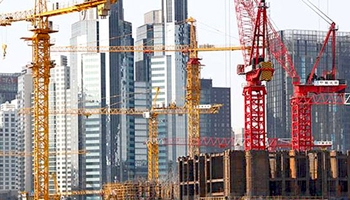New Delhi/Beijing, Apr 4: China has announced that it would establish the Xiongan New Area in Hebei Province, similar to those established in Shenzhen and Shanghai.
 The New Area, about 100 km southwest of downtown Beijing, will span three counties that sit at the center of the triangular area formed by Beijing, Tianjin and Hebei`s provincial capital Shijiazhuang.
The New Area, about 100 km southwest of downtown Beijing, will span three counties that sit at the center of the triangular area formed by Beijing, Tianjin and Hebei`s provincial capital Shijiazhuang.
Xiongan New Area “will eventually cover an area nearly three times that of New York,” the Guardian quoting official sources said.
This is another new area with national significance after the Shenzhen Special Economic Zone and the Shanghai Pudong New Area, according to a circular issued by the Communist Party of China (CPC) Central Committee and the State Council.
The move is a "major historic and strategic choice made by the CPC Central Committee with Comrade Xi Jinping as the core," said the circular.
The move will help phase out non-capital functions from Beijing, explore a new model of optimized development in densely-populated areas, and restructure the urban layout in the region, according to the circular.
The New Area will cover around 100 square km initially and will be expanded to 200 square km in mid-term and about 2,000 square km in the long-term.
It is the latest step in China`s efforts to reduce traffic, air pollution, and population growth in overcrowded, smoggy Beijing.
Authorities hope that the Xiongan New Area will be a new centre for growth in the world`s second-largest economy, which last year expanded at its slowest rate in a quarter of a century.
The decision to set up Xiongan New Area is a key stroke in solving urban woes and creating new growth, said a commentary carried by the website of the People`s Daily, flagship newspaper of the CPC.
Xiongan and Tongzhou will form "two wings" for Beijing and create new room of development for the Beijing-Tianjin-Hebei region, the commentary said.





Comments
Add new comment